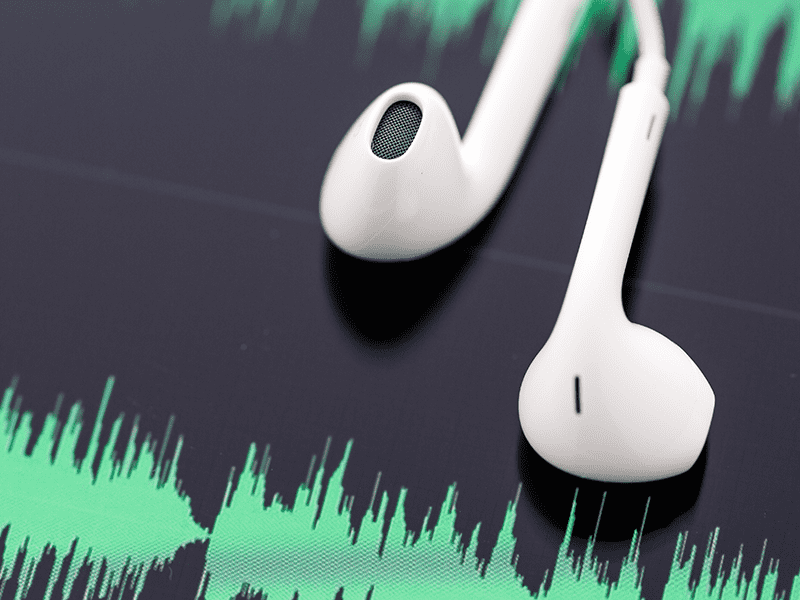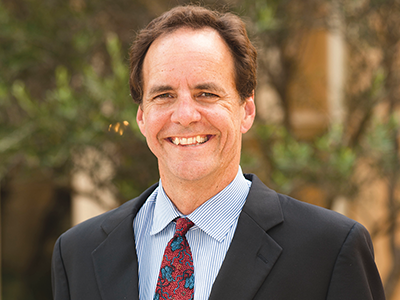
Going Viral

Going Viral
Originally Posted 9/01/2018 |
From the Fall/Winter 2018 Issue
The podcast allows for more in-depth information from recognized experts regarding a specific topic.
Fungal jungles, the bugs in your belly, ticks and sand flies, and fermentation? These might not seem related, but they are all topics for discussion during MicroTalk, a podcast from UTSA biology professor Karl Klose, who holds the Robert J. Kleberg Jr. and Helen C. Kleberg College of Sciences Professorship. Inspired by a seminar series at the South Texas Center for Emerging Infectious Diseases, where Klose is the director, the podcast started two years ago and brings together experts on diseases and other topics in microbiology. With an endorsement from the American Society for Microbiology and witty pun-filled marketing from Klose (“a podcast too infectious to ignore,” is just one example) MicroTalk has become a popular destination for fellow researchers.
What made you think about doing a podcast? The neurobiology group in our biology department had started a podcast to promote discussions with the guests they were bringing to campus as part of their seminar series. I realized what a great mechanism this is to communicate science and microbiology and to promote UTSA. We have our own weekly STCEID seminar series, which brings in experts in microbiology and infectious diseases from all over the country. A podcast based on discussions with these speakers would be a great way to promote the center, but I was slightly intimidated by the technology involved. Then we hired a technical support person in the biology department who was an expert in audio technology. She helped set up our podcast and took care of the technical aspects, which freed me to develop the content and promote the podcast series.

What do you like about doing the podcast format? The podcast allows for more in-depth information from recognized experts regarding a specific topic. The format is similar to listening to NPR when they interview an expert on their area of expertise. It's a relaxed and informative discussion, and the guests are always happy to talk about what they have devoted their careers to studying. The podcasts are unscripted so they can meander to interesting and unexpected topics, which makes it more similar to a conversation.
Where do you find your guests? When we started the podcast we exclusively taped episodes with the guests who were on campus as part of our seminar series. However, this limited us to discussing only certain topics, and sometimes the topics became repetitive. We have since expanded to recording episodes with remote guests, which has dramatically expanded the types of topics we discuss. Because the time commitment for a remote guest is no more than one hour in their own office, we can record a podcast with people who couldn’t readily travel to UTSA. I usually read about an interesting scientific topic and then contact the scientists involved in these studies to ask if they would like to participate in a podcast. Generally, scientists are happy to discuss their areas of research interest.
The podcasts are unscripted so they can meander to interesting and unexpected topics, which makes it more similar to a conversation.
For each episode you have a case study. How do you come up with those? I write the case studies. The idea behind case studies is to engage the listener with an entertaining scenario and let them practice their medical skills by paying attention to the symptomology of infectious disease and the background history relevant to disease transmission. Case studies are one of the critical components of medical school education, because this is what physicians encounter when they practice medicine. Our case studies are meant to be able to be solved by most listeners and to be entertaining to all listeners.
What kind of response have you gotten? We have had very positive responses from everyone who has listened to our podcast. Our podcast is hosted by the American Society for Microbiology, the largest single life sciences society, composed of over 50,000 scientists and health professionals. We have listeners all over the world.

